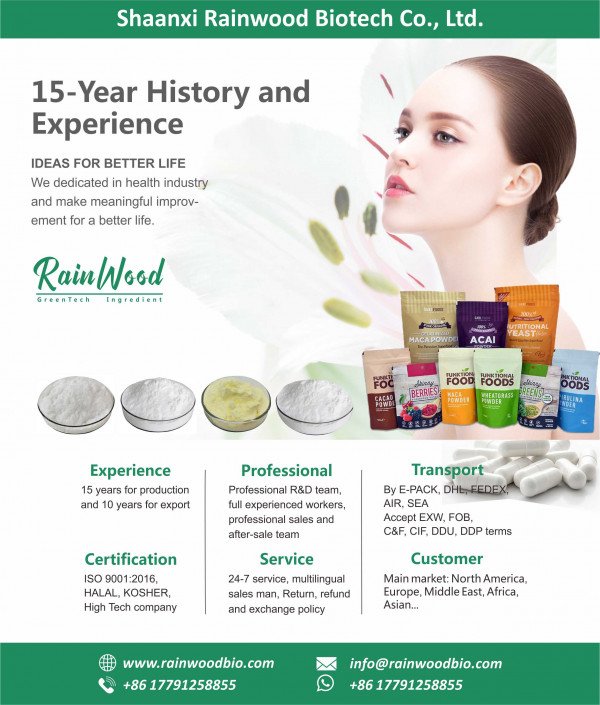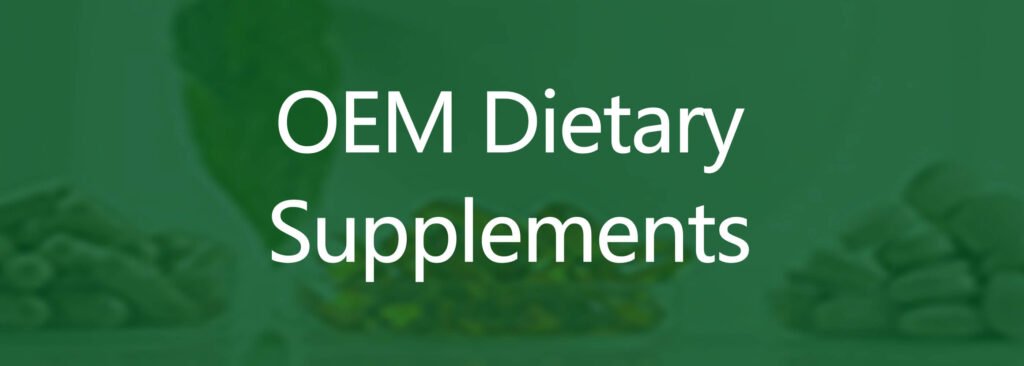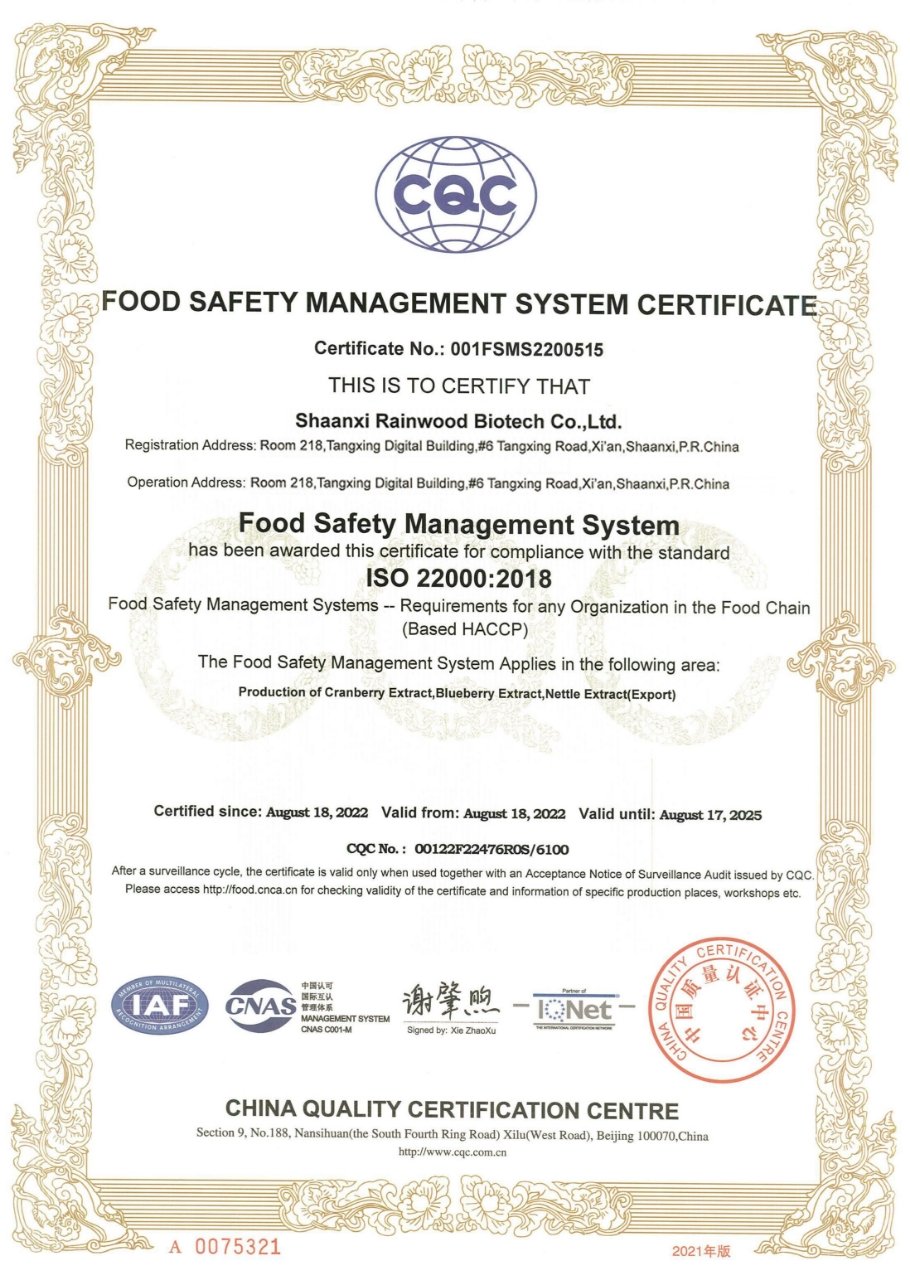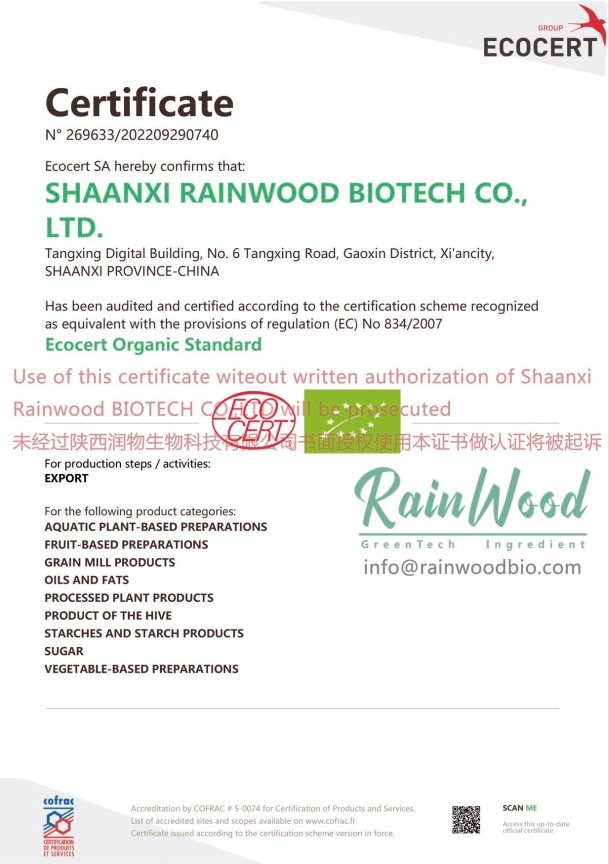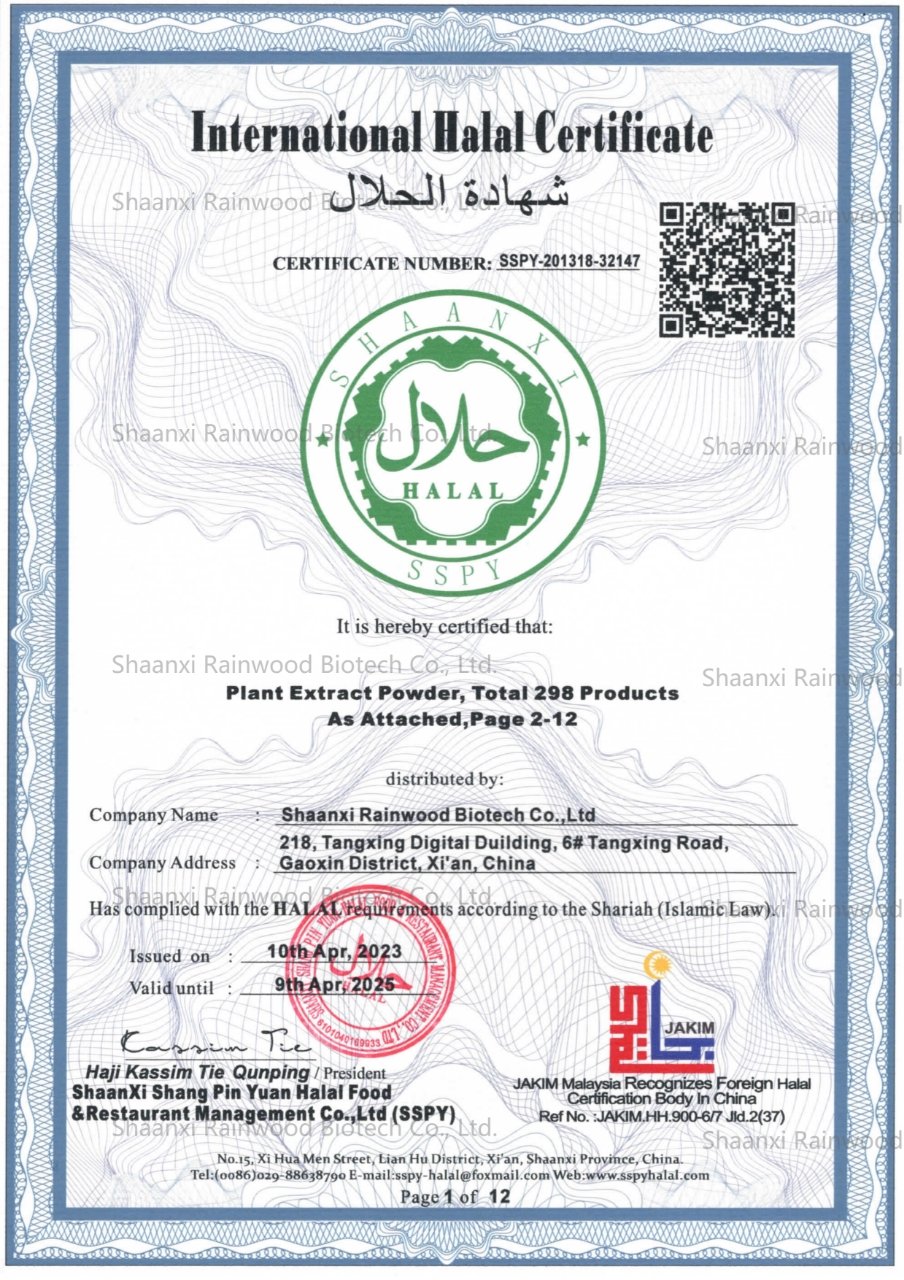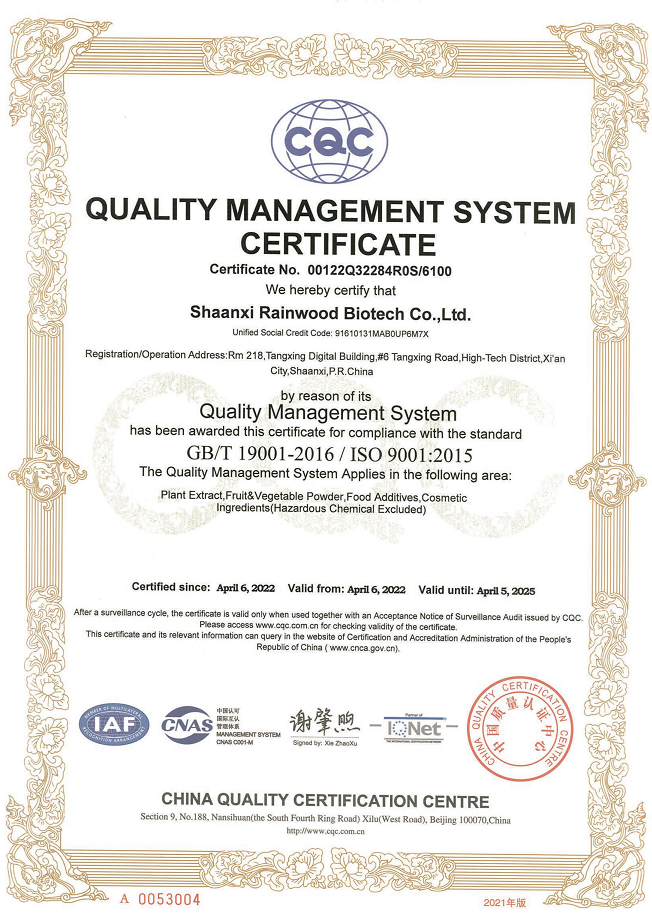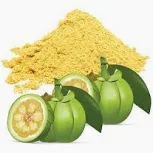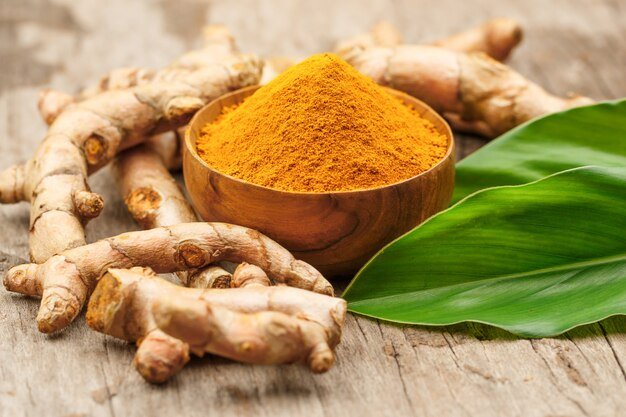Novel Coronavirus (2019-NCOV) pneumonia broke out in December 2019 triggered a discussion on consumers’ immunity, and “human’s own immunity is the best doctor” and “enhancing immunity” have also become the popular words. So, the higher the immunity, the better?
The answer is no. Low immunity and high immunity are both harmful to health. If immunity is too low, the human body cannot recognize the invasion of foreign infection source (such as bacteria, virus, etc.) and eliminate it in time. If the immune system is too high, it will damage its own tissues and organs while attacking foreign sources of infection, leading to the emergence of diseases. For example, rheumatoid arthritis, systemic lupus erythematosus, chronic kidney disease, ulcerative colitis, etc., are all caused by excessive immunity.
So it’s important to have a balanced immunity. Natural plant extracts have the effect of regulating immunity. Today I will introduce the effect of curcumin, the active ingredient in turmeric, in regulating immunity.

Turmeric has a medicinal history dating back 5,000 years and is an important herb in Ayurveda, the Indian yoga and traditional health regimen. Curcumin is a yellow dye obtained from turmeric (CurcumalongaL.). It is the most commonly used spice in Indian cuisine and the main ingredient of curry powder. In the past few decades, curcumin has been shown to be an effective immunomodulator that regulates the activity of T cells, B cells, macrophages, neutral (white) cells, naturally killed cells, and dendritic cells.

Effects of curcumin on T lymphocytes
Studies have shown that curcumin can inhibit the proliferation of human spleen lymphocytes induced by mitotic factor con-a, PHA and PMA. It can also inhibit the proliferation of T lymphocytes stimulated by PMA and anti-CD28 antibodies or induced by PHA. However, Li Xinjian et al. found that low-dose curcumin (0 ~ 6.25 mol/L) significantly upregulated con-a-induced T lymphocyte proliferation, which peaked at 6.25 mol/L and gradually decreased after 12.5 mogL.And show inhibition.It’s almost completely inhibited at 100 mol/L. It is suggested that the immunomodulatory effect of curcumin is related to dose. The possible mechanism is associated with inhibition of NF- B activation.
In addition, curcumin has been shown to enhance immunity in cancer therapy. Curcumin has the ability to change the immune balance, which is beneficial to the immune system and restore the immune system-mediated elimination of tumors.
Effect of curcumin on B lymphocytes
Curcumin can inhibit the proliferation of mutant lymphocytes. Curcumin showed inhibitory effects in both mouse and human B lymphoma cells in vitro and in mouse B lymphoma animals.
Effect of curcumin on mononuclear macrophages
Curcumin can inhibit the proliferation of macrophages, increase their phagocytosis, and then regulate the proliferation of spleen cells. Curcumin activates macrophages by downregulating Th1 and NO production.
Effect of curcumin on NK cells (naturally killing cells)
Curcumin can affect the immune function of natural killer cells (NK cells) and increase the cytotoxicity of NK cells. Kim et al. found that curcumin also increased the death of refractory natural killer/T cell (NKTL) lymphoma cell lines that were resistant to other treatments.
Effects of curcumin on dendritic cells
Dendritic cells. dc are specialized antigen-presenting cells. It can significantly stimulate the proliferation of initial T cells and is the initiator of the body\’s immune response. It plays a unique role in the induction of immune response.
Studies have shown that curcumin treatment can improve the intracellular uptake of DC through mannose-mediated receptors and increase the ability of DC to capture antigens. Further studies showed that curcumin treatment of DC before LPS stimulation completely inhibited lPS-induced MAPK phosphorylation and NF- B nuclear translocation signaling pathways.

It has been mentioned many times that curcumin inhibits the NF- B signaling pathway. How does curcumin inhibit NF- B signaling?
NF- B(positive transcription factor – B) is a family of inducible transcription factor proteins widely found in eukaryotic cells.NF-B plays an important role in immune cell activation, T and B lymphocyte development, cell proliferation, and apoptosis.
NF- B is activated mainly by the degradation of I B. In addition, NF- B signaling is activated by a variety of activators in vivo and in vitro, such as cytokines, mitogens, environmental and occupational factors, toxic substances, viral or bacterial products, ultraviolet radiation, and oxygen radicals, all of which activate NF- B in different mechanisms.
Curcumin first inhibits the degradation of I B and then inactivates (or inactivates) NF- B, thereby initiating inflammatory and immune responses.
Curcumin inhibits NF- B activity, which in turn directly inhibits the activity of many pro-inflammatory cytokines (e.g., TNF, IL-1, IL-2, IL-6, IL-8, anDIl-12) and down-regulates the mRNA expression of many pro-inflammatory enzymes (e.g., COX, LOX, MMPs, and NOS).In addition, curcumin further enhances the immunogenic response by inhibiting TLRs.
Curcumin in Alzheimer’s disease, multiple sclerosis, cardiovascular disease, diabetes, allergies, asthma, inflammatory bowel disease, rheumatoid arthritis, renal ischemia, psoriasis, and scleroderma play before immune activity, and curcumin is scientifically proved no toxic and side effect to human body, the body’s largest tolerance: 12 g/day). It is an important direction for further research as a potential immune modulator in immune disorders.
Curcumin Extract Powder is one of the plant products. Are you worried that you can’t find good Curcumin Extract Powder? From today onwards, you don’t have to worry about that anymore.
Shaanxi Rainwood Biotech is dedicated to the herbal extract industry, In this field not only have rich experience, also have a good reputation. Its aim is to create a health care raw material brand that everyone can rest assured, to solve your choice of trouble!
